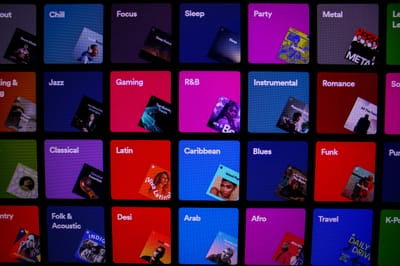Articles
As an independent artist, protecting your music legally is crucial to ensure you retain control over your work and receive the compensation you deserve. Here's an easy-to-follow guide to help you safeguard your music rights and navigate the legal aspects of the music industry.
Read MoreRegistering your copyright is a crucial step in protecting your music legally. It provides you with the exclusive rights to your work and the ability to take legal action against unauthorized use. Here’s a detailed guide to help you through the process:
Read MoreTrademarking your name and logo is an important step in protecting your brand identity. This guide will walk you through the process of registering a trademark in the United States.
Read MoreGetting your music on Spotify playlists can significantly boost your exposure and reach. Here’s a step-by-step guide to help you navigate the process and increase your chances of landing on influential playlists:
Read MoreSampling music has become a common practice in the music industry, allowing artists to pay homage to existing works while creating something new and unique. However, using samples without proper clearance can lead to legal issues and financial penalties. As an independent artist, it's crucial to understand the process of clearing music samples to protect yourself and your work. Here’s a step-by-step guide to help you navigate this process.
Read MoreAs an independent artist, understanding the differences between clearing a beat sample and clearing a lyric sample is crucial for protecting yourself legally and ensuring your music can be distributed without issues. Here’s a detailed comparison to help you navigate the process effectively.
Read MoreResearching the copyright holders of a piece of music is a crucial step in the process of clearing samples. Whether you're dealing with a beat sample or a lyric sample, knowing who owns the rights to the original work is essential for obtaining the necessary permissions. Here’s a step-by-step guide to help you identify and contact copyright holders.
Read More





